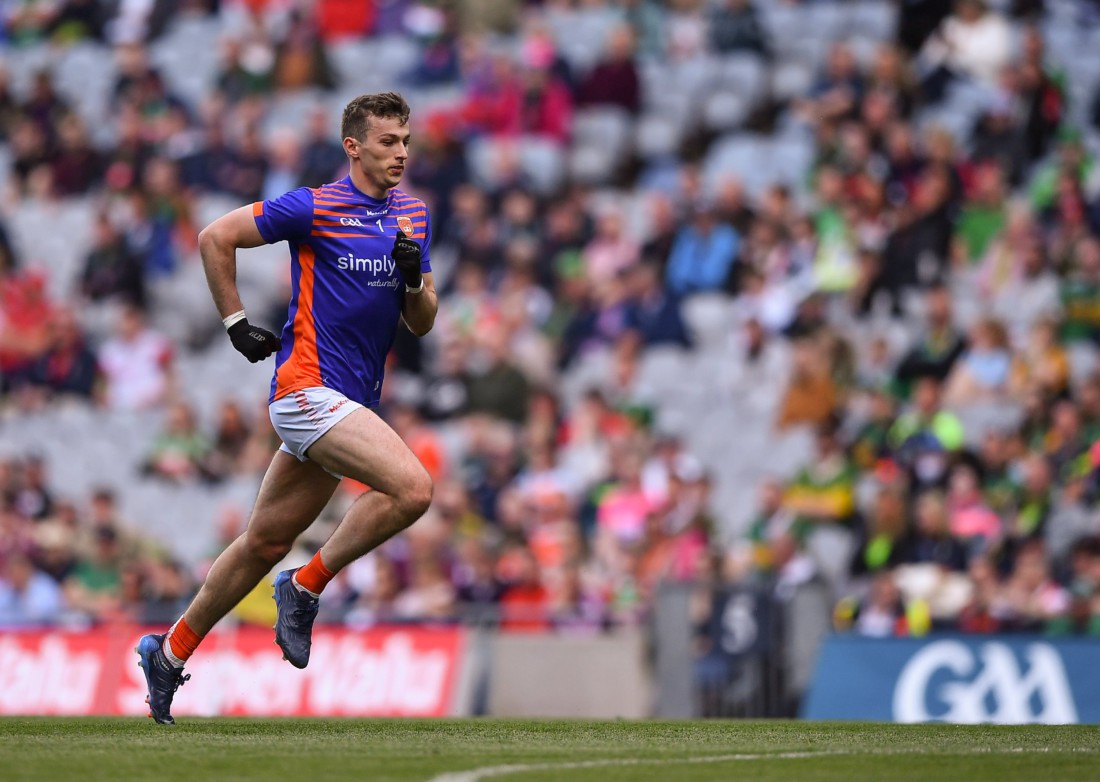By Patrick Morrison
“THERE is no such thing as bad weather… only poor preparation!” – Alfred Wainwright
With the inter-county scene finishing its National Leagues this weekend and the new club season(s) on the verge of commencing, or already have, teams the length and breadth of the country will be putting their well laid plans into practice. Like Alfred Wainwright’s quote alludes to, they will all be looking to ensure they are ready for all eventualities.
The majority of teams nowadays will have a full training plan for the whole year, a step-by-step account of what and when they will work on certain things aiming for continuous progression ultimately peaking with the championship part of the season. This planning sets out the training schedule for the year ahead and gives guidance for what areas of your game you will work on throughout the season. This is called periodisation.
To create a periodised training plan for your goalkeeping season you must first fully understand what part of the season you are in so that you can then tailor your training schedule accordingly. With it being January, all teams will be in their pre-season stage meaning that there will be a heavy emphasis on endurance and conditioning as well as strength and power in the gym.
For a goalkeeper, the type of endurance and conditioning that they must be doing is completely different to what the outfield players need to be completing. Just like the outfield players, the goalkeeper’s pre-season endurance and conditioning exercises must be position specific. This means that the goalkeeper should be working on drills that require him to be working at his maximal output in a game-related situation with a high number of sets and reps. Rest periods can be increased and decreased as necessary but ultimately the drill should be relative to the goalkeeping position.
Making a goalkeeper participate in the endurance running or speed training that the outfield players complete will still increase the goalkeeper’s endurance and conditioning but not in the way that the goalkeeper needs to complete his positional duties to the best of their ability. If running is a must, then ensure that the goalkeeper is completing running drills that will mirror the runs and sprints that they will make in a game situation.
Moving forward into the season, the goalkeeper’s training now becomes more technical and specialised in nature. The goalkeeper will now have sessions or part of the team session dedicated to themselves and their coach. This is when the goalkeeper will work on certain goalkeeping techniques like diving, footwork, kicking etc., fine-tuning them as the season progresses.
At the beginning of the season the drills will be focused more on correcting imperfections with the technical side of the goalkeeper’s game. They will then develop into game situations completing a mid-range number of reps and a handful of sets. As this part of the season progresses the intensity of the drills will gradually increase, and the rest periods will decrease in conjunction with the intensity. Throughout the season the coach will also increase the pressure, speed, consistency, and competition conditions to ensure the goalkeeper progresses appropriately.
As the season then moves into the post-season or championship stage of the year, the training schedule again changes for the goalkeeper. During the season the goalkeeper had the luxury of being able to take time and work on technical flaws and gradually put them into varying degrees of game-related difficulties with the allowance of errors to occur.
Now in the throes of championship football, the allowance for mistakes is minimal as all techniques and processes should already be fine-tuned and embedded into the goalkeeper’s game. Now the drills that the goalkeeper completes are exact replicas of game situations meaning that the speed and intensity as well as the pressure, consistency levels and competition conditions are all mirrored in them.
Now the goalkeeper will have a very mixed session that will include the majority of the five goalkeeping areas. The drills will only be of a low number of both sets and reps but will be performed at the goalkeeper’s maximal output with little to no rest. With all of the hard work being completed during the earlier season on skill acquisition and fine-tuning, this championship season is now for maximising those skills worked on earlier in the year.
The next part of the season is the ‘GROW’ season. After all competition has ceased for the goalkeeper, they must have a plan in place to keep them active once the season comes to an end. This plan will also include family and social aspects that had previously been on hold.
The grow season can be longer for some goalkeepers affording them time to work on their game especially parts they feel are lacking or parts they would like to introduce i.e. – being able to take restarts with their other foot competently.
Having a periodised plan in place gives the goalkeeper good direction and allows both the goalkeeper and the coach the ability to future plan their sessions accordingly. It will also allow them to include or exclude anything as they see necessary because essentially your periodised plan is a map to your peak performance. So, in that sense it is important to first decide where it is you want to get to and then plan your route accordingly. Remember if you ‘Fail to prepare, Prepare to Fail.’
Email: pmgoalkeeping@hotmail.com
Facebook: @MSoG11
Twitter: @MorSchGk
Receive quality journalism wherever you are, on any device. Keep up to date from the comfort of your own home with a digital subscription.
Any time | Any place | Anywhere












